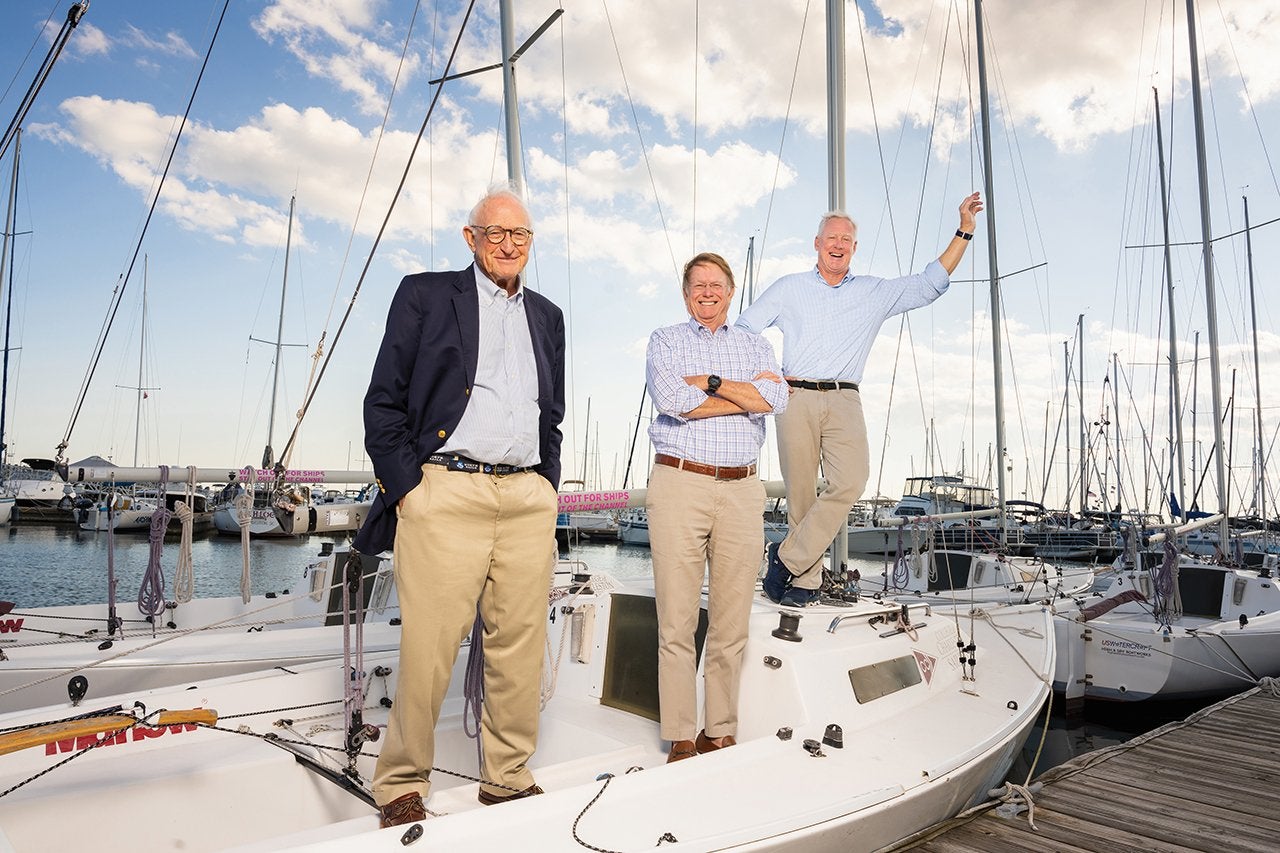J. Stewart Walker Jr. ’78 epitomized what it meant to be a sailor. Fiercely competitive, he sailed to win but then would turn around and offer advice to a competitor’s crew. Walker’s childhood friends were all sailors and, though they attended different universities, they still competed against and with one another – having fun along the way.
In 1978, Walker’s passion and prowess led to him becoming the College’s first All-American athlete and South Carolina’s second recipient of the Inter-Collegiate Sailing Association’s All-American designation. Walker gave the CofC sailing team national prominence and, after graduating, was active in every aspect of the local sailing scene, including the College’s sailing team where he served as judge, race committee member, supporter and adviser.
Walker died in 1983 when the mast he was taking down after a regatta hit a power line. In lieu of flowers, his parents asked that people donate to the College’s sailing team. The outpouring was so great that George Wood, the sailing coach at the time, proposed an advisory board be formed to manage the funds and the growth of the CofC sailing team.
The inaugural J. Stewart Walker, Jr. Endowed Fund Board of Advisors was made up of Walker’s childhood friends and pallbearers, who wanted the board to embody Walker’s spirit, thus ensuring his legacy continued and setting up the CofC sailing team to be a formidable competitor. Miles Martschink (above center) was on the inaugural board, together with Lenny Krawcheck ’62 (above left) and Ross Griffith (1955–2019) – South Carolina’s first Collegiate Sailing All-American.
“Stewart and I grew up together and started sailing against each other as teenagers,” recalls Martschink, who is still on the board today, as is Krawcheck. “He was truly an exceptional sailor and helped the College’s sailing program take off.
“I remember Stewart wanted to go to a sailing competition, but there was no travel budget, so he sold doughnuts on campus,” adds Martschink, who was on The Citadel’s varsity sailing team. “With that in mind, we decided one of our first efforts would be to raise funds for a travel budget. Stewart had so many good friends, raising funds locally was easy – then, as the team started cranking out All-Americans, fundraising got even easier.”
Younger than Walker by five years, Crayton Walters (above right) joined the advisory board in the 1990s.
“I had sailed with Stewart a lot,” says The Citadel graduate. “He was a cool mentor, so I was honored to get involved with the board. Strengthening CofC sailing makes sailing in Charleston better. Because of the College, we have world-class sailors in Charleston all year long sailing with locals and teaching in local programs. It’s a great injection of talent.”
To support that talent, Walters facilitated a gift to the sailing team when he served on the crew of Edgar Cato, an Aiken, South Carolina, businessman and two-time 12 Metre class world champion. “I talked about the CofC program, and Edgar and his wife, Sam, graciously agreed to fund an endowment for a fleet of sailboats, among other things,” he says.
When the Catos presented their gift of the $1 million Hissar Sailing Program Endowment Fund in 2006, it was the largest single private donation to any sailing program in the country. Today, more than 200 All-American designations later, the CofC sailing team is among the top teams in North America, in league with the U.S. Naval Academy and Yale. The success can be attributed in large part to a band of passionate sailors with a desire to keep their friend’s legacy alive.
“If Stewart had lived,” says Martschink, “he would probably have done something along these lines.”




